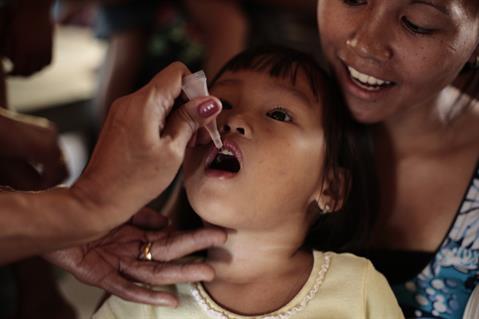Source: Thailand Medical News Sep 19, 2019 6 years, 4 months, 3 weeks, 2 days, 2 hours, 46 minutes ago
The World Health Organization (WHO) declared the Philippines free from the wild polio virus in 2000, seven years after its last case was monitored in the country. But new cases are emerging just this week in two areas including Manila and Davoa, a southern province. Health officials are putting some of the blame on mistrust stoked by a dengue fever vaccine scandal and lack of education about the need for the polio vaccine and also on how to correctly have it and also the correct dosing.
In the latest case reported today (Thursday, 19 of September),health authorities said a three-year-old girl in a southern province had contracted polio, while the virus was also detected in Manila's sewage and in waterways of the large southern city of Davao. The health department said that it was also investigating other suspected cases but declined to give specifics.
WHO country representative Rabindra Abeyasinghe commented in a phone interview with
Thailand Medical News. "These are polio cases of any kind since 2000. We are concerned that there are maybe other people who have been exposed to this virus and there could potentially be much more cases. When your immunisation coverage is very low, you can have the vaccine-derived polio virus being transmitted from individual to individual”
Over the past thirty years the world has made great achievements in the battle against polio, a highly infectious disease which can lead to paralysis or even death and has no cure.
The news comes after the Philippines was hit by measles and dengue outbreaks earlier in 2019, killing more than a thousand people, as many parents did not get their children vaccinated.
Philippines Health Secretary Francisco DuqueDuque called on parents, health workers and local governments to help government doctors boost the vaccination effort."It is the only way to stop the polio outbreak and to protect your child against this paralysing and deadly disease," Duque commented.
Philippines which is a dengue-prone country in 2016 became the first nation to use Dengvaxia, the world's first dengue vaccine, in a country trial programme involving hundreds of thousands of schoolchildren. But controversy arose after its French manufacturer Sanofi disclosed a year later that it could worsen symptoms for people not previously infected with the virus. Manila immediately stopped the programme and banned the vaccine.
The medical disclosure by Sanofi sparked a nationwide panic, with some parents alleging the vaccine killed their children, though a government-commissioned investigation found no conclusive proof that it did. As a result of that many locals were distrustful of vaccines and refused to have their children vaccinated or did not follow up with the right doses or even worst threw away some of the doses. And this what is what is causing the polio re-emergence.
Polio strains detected in Lanao del Sur, Manila and Davao are all of the vaccine-derived variety like the last cases detected in the country before 2000. The type of polio virus detected has genetically mutated from a weakened strain of original wild polio that is contained in the oral vaccine used all over the world to control the disease. The mutation happens only if the vaccine doses are incomplete or coverage is low. It gives the virus an opportunity to mutate and multiply. But what is worris
ome is that a more aggressive and virulent strain could evolve from this mutation process.
WHO and local health officials are on alert and a major public relations programme is going to be initiated to educate the local people about the need for vaccinations for their children and also to report any cases of diseased individuals immediately.
